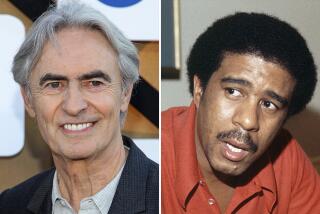The unfairness doctrine
The demise of immigration reform legislation in the Senate has led some congressional Democrats to strike back at conservative talk-radio stations, which stoked public opposition by labeling the bill “amnesty” for illegal immigrants. Their anger at the talkers’ demagoguery is justified, but their response isn’t. They want to revive the Fairness Doctrine -- a Cold War-era federal rule designed to promote balanced coverage of important issues on the public airwaves. Under this rule, broadcasters who took a side on a divisive topic could be compelled to give free airtime to opposing points of view. If they refused, they risked losing their licenses.
The threat to talk radio is clear. If the rule were reinstituted, stations that carry Rush Limbaugh could be forced to broadcast commentaries favoring everything that Limbaugh derides, from greenhouse gas controls to same-sex marriage. With hundreds of provocative talk-show hosts on the air, federal regulators could soon be awash in demands for rebuttals.
But the danger posed by the Fairness Doctrine is broader and more fundamental than an attack on a radio format. No matter what your point of view might be, you have free or inexpensive outlets available today to express them -- maybe not a radio or TV station but certainly a website, a video blog, a podcast or an e-mail newsletter. At the same time, the public has unprecedented access to a diverse array of opinions. Just as the government shouldn’t decide what you say on the channels you create, nor should it be able to dictate the range of opinions people hear over the air.
The Federal Communications Commission instituted the Fairness Doctrine in the late 1940s as a compromise of sorts -- it wanted broadcasters to pay attention to local issues but feared they would exert undue influence over them. It abandoned the rule in 1987 on grounds that the rise of cable TV networks had diluted broadcasters’ sway over public opinion. The proliferation of media sources has made that dilution even more pronounced today.
Granted, broadcasters remain the most powerful voices because they’re the ones with the largest audiences. But that’s because the public chooses to tune them in, not because there are no alternatives. Restoring the government’s power to monitor broadcasters’ fulminations and splice in opposing views seems more likely to tame speech than to enlighten listeners.
More to Read
A cure for the common opinion
Get thought-provoking perspectives with our weekly newsletter.
You may occasionally receive promotional content from the Los Angeles Times.






